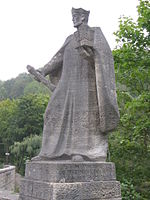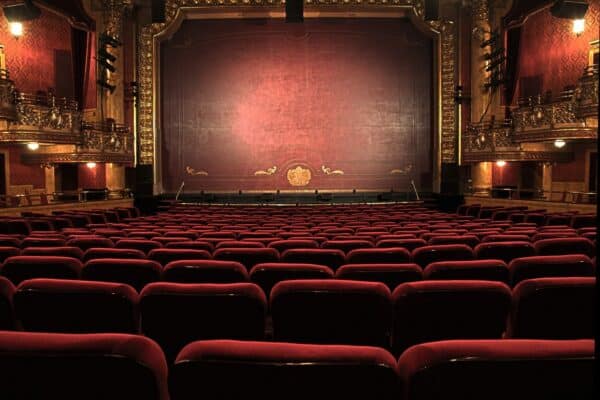La battaglia di Legnano. Sedan Verdi skrivit tre operor byggda på verk av utländska mästare som Shakespeare, Friedrich Schiller och lord Byron var skalden och nationalisten Giuseppe Giusti angelägen om att han skulle komponera en fosterländsk opera. Han fick sin önskan uppfylld då Verdi beställde ett libretto med patriotiskt motiv sedan han bevittnat upproret i Milano 1848, där italienarna fördrev österrikarna från staden. Vid tiden för premiären rådde en spänd politisk situation i Rom, som i mitten av januari 1849 ledde till att påven Pius IX flydde till Gaeta varifrån han sökte bistånd från utländska makter. I den här förtvivlade, men inte helt hopplösa situationen uruppfördes Verdis sista risorgimentoopera. Cammarano förlade handlingen till 1176, men situationen var lätt att koppla till händelserna 1848, så premiären blev en våldsam succé där hela fjärde akten måste bisseras. Tolv dagar efter premiären (9 februari) proklamerade Garibaldi den kortlivade republiken i Rom. Efter några framträdanden i andra städer förbjöds operan av den österrikiska censuren, men då hade den redan haft den propagandaeffekten som Cammarano och Verdi hade avsett.
La battaglia di Legnano synopsis 1849
Akt I
I Milano samlas trupper från olika städer i Lombardiet för att kämpa mot den tyske kungen Federico Barbarossa under befäl av Arrigo från Verona. Här möter han sin vän Rolando som är milanesernas ledare och har trott att Arrigo har stupat i ett slag. Den församlade hären svär att kämpa till till sista blodsdroppen för att befria sitt fädernesland från förtryckarna
Rolando är gift med med Lida som tidigare varit trolovad med Arrigo, men även hon trodde att han var död. Hon kan inte dölja sin glädje då hennes kammarjungfru Imelda berättar att han alltjämt är i livet och på väg i sällskap med Rolando. Detta observeras av den frigivne tyske fången Marcovaldo, som själv är förälskad i Lida men har blivit avvisad. Då Arrigo anländer blir han bestört vid upptäckten att Lida nu är gift med hans bäste vän. När de blir ensamma beskyller han henne för trolöshet och vill inte lyssna till hennes förklaring om att hon trodde att han var död.
Akt II
I Como försöker Arrigo och Rolando som företrädare för den lombardiska alliansen att få staden att ansluta sig till deras parti, men borgmästaren avslår med hänvisning till att han redan har ingått fördrag med Barbarossa.Rolando och Arrigo beskyller honom för landsförräderi. Då de pressar honom på ett definitivt svar stiger Barbarossa själv in och beordrar att fönstren skall slås upp så att de båda lombarderna kan se hans här, som är samlad utanför Como. De låter sig dock inte skrämmas utan förutskickar ett blodigt krig, eftersom italienarna kämpar för sin frihet.
Akt III
I en kyrka i Milano möts ett speciellt förband, Campioni della Morte, som svär att driva ut tyskarna ur Italien eller dö. Arrigo tillhör dem och får veta att Rolando har valts till deras befälhavare. Rolando ber Arrigo att ta hand om hans hustru och barn om han dör och de omfamnar varandra till avsked, men då Marcovaldo senare överlämnar det avskedsbrev till Rinaldo som Lida skrivit till Arrigo och som han har snappat upp, blir Rolando arg och bestämmer sig för att hämnas på dem båda.
Då Lida inte får svar på sitt brev uppsöker hon Arrigo för att säga farväl. De hör Rolando utanför och hon gömmer sig på en balkong, men han upptäcker henne och vill döda Arrigo. I sista ögonblicket inser han att vanära skulle vara värre än döden för Arrigo och låser in honom då han själv drar ut med sina trupper. Arrigo är dock så fast besluten att delta i striden att han hoppar ut från balkongen med ropet “Viva Italia”
Akt IV
I Milano väntar man på de segerrika lombarderna. Arrigo har personligen dödat Barbarossa men är själv dödligt sårad. Han svär inför Rolando på att Lida inte har bedragit honom och de båda vännerna försonas innan Arrigo dör, hyllad av folket.
In ENGLISH
- Time: 1176
- Place: Milan and Como
Act 1 – “He is Alive!”
Scene 1: Milan, not far from the city walls
Outside the city walls, people have gathered in support of the Lombard League whose troops are about to go into battle against the occupying German Emperor Federico Barbarossa. Among them is Arrigo, a young soldier whom all had thought dead, but he has now re-joined the army and he recounts how his mother had nursed his wounds (La pia materna mano / “A mother’s kindly hand”) after he was left for dead.
Having recovered and before leaving again, he wants to see Lida, his sweetheart. Rolando, Arrigo’s friend and leader of the troops from Milan, arrives and he is amazed to see Arrigo alive. Joyously, he embraces his friend (Ah m’abbraccia d’esultanza / “Ah! Come to my arms…”). The gathered troops and the consuls of Milan all swear to defend the city against tyranny.
Scene 2: Beside the ramparts of the city
Rolando’s wife Lida, who has lost her parents and brothers and who is downcast at the prospect of further war, also mourns the loss of her former love, Arrigo. She is unable to share in the general excitement of the upcoming battles. A German prisoner, Marcovaldo, who has been given some degree of freedom by Rolando, declares his love for Lida, but she is outraged and refuses him.
As Rolando returns home, bringing with him Arrigo, Lida is angry (A frenarti o cor nel petto / “My heart, no longer have I the power…”). When Arrigo arrives, he is clearly upset to see Lida married to his best friend. But with Rolando suddenly called away to the Senate by the news that Barbarossa’s troops are on the move, Arrigo and Lida are left alone.
She tries to explain that her father encouraged her to marry Rolando after all believed that Arrigo had been killed in battle. But Arrigo will not listen and does not believe her. He declares her a “faithless one”, and hurries away, wishing only to die in the forthcoming battle.
Act 2 – “Barbarossa!”
The town hall of Como
The city fathers of Como have gathered to await the arrival of Rolando and Arrigo as ambassadors of the League from Milan. Como has been forced to come to terms with the invaders, and when the two men arrive, they announce that a new army has invaded from the north, that Barbarossa is having problems in Padua, and they seek Como’s help, pointing out that the city lies between Milan and the invaders. They hope that Como will intervene to help the Italian cause.
Suddenly, Barbarossa himself appears, proclaiming that “I am Italy’s great destiny”. His troops have surrounded Como and now further threaten Milan. He demands that Arrigo and Rolando return to Milan and seek its submission.
Act 3 – “Infamy!”
Scene 1: The Basilica of Sant’ Ambrogio
In the subterranean vaults of the Basilica, Arrigo is inducted into the Knights of Death, warriors who have pledged to fight to the death rather than suffer defeat or imprisonment. All unite to swear an oath to support the cause of Italy (Giuriam d’Italia por fine ai danni / “We swear to put an end to Italy’s wrongs”) and to drive the foreign forces back across the Alps.
Scene 2: Rolando’s castle
Lida has heard that Arrigo has joined the Knights of Death, and desperately tries to contact him via a note to be conveyed by her maid, Imelda. As Imelda is about to leave, Rolando suddenly enters to say farewell to Lida and to their son, whom he has brought to him. Imelda hides the note, then quickly leaves. Rolando tells Lida to convey his love of country to their son, and to bring the boy up to love the fatherland (Digli ch’è sangue italico / “Tell him he is of Italian blood”).
Arrigo enters, summoned by Rolando, who does not know that his friend has joined the Knights of Death. Thinking that Arrigo has been ordered to remain to guard Milan, Rolando begs him to take care of his wife and son in the event of his death (Se al nuovo dì pugnando /”If when we fight on the morrow”). The two men part company, Rolando moved by grief, Arrigo with embarrassment.
Just as Rolando is about to leave, Marcovaldo delays him, telling him that his honour has been betrayed and presents him with Lida’s note to Arrigo, which he has intercepted. Rolando is enraged and proclaims that he will obtain double vengeance on his wife and his friend (Mi scoppa il cor / “My heart is bursting”).
Scene 3: A room in the tower
Having received no response to her note, Lida goes to see Arrigo in his room in the tower, where he is writing a farewell letter to his mother. Although they declare their love for each other, he tells her that he has not received any note. Lida tries to persuade him to abandon his suicidal quest while he distraughtly recounts his dismay at finding her married. Finally, Lida says that they must separate for the sake of her husband and child. Then Rolando is heard at the door and, before he enters, Lida hides on the balcony.
Rolando confronts Arrigo, telling him that he now knows about his vow to the Knights of Death and encourages him to depart. Then he opens the balcony door and discovers Lida. Rolando is in a rage while Arrigo confesses his love for Lida but asks for death. Lida then declares that she is the guilty one.
Still raging, Rolando storms out to lead the Milanese troops into battle, but as he leaves, he locks the tower door on Arrigo and Lida, declaring that Arrigo will suffer a fate worse than death: the infamy of being absent from the battle in which he had promised to fight, and so will lose his honour. As trumpets signal the beginning of the battle, Arrigo, in desperation, leaps from the tower into the moat, shouting “Long Live Italy!”. Lida remains in anguish.
Act 4 – “To Die For the Fatherland!”
A square in Milan
The assembled people sing a prayer for victory. Imelda assures Lida that Arrigo survived his leap from the tower and Lida prays for the safety of both Arrigo and her husband (Ah se di Arrigo e Rolando / “Ah! If I recommend to Thy care the lives of Arrigo and Rolando”.) As the people begin a hymn of victory, city officials enter the church to confirm the defeat of Barbarossa’s troops by the Lombard League, declaring that Barbarossa was wounded by Arrigo.
But, in the middle of the victory celebrations, a group of Knights of Death enter bearing the mortally wounded Arrigo. Rolando receives Arrigo’s assurance that Lida is innocent and that she had always acted honourably. Reconciling with Lida, he forgives Arrigo, who with his last breath, proclaims that “Italy is saved!”
UPPHOVSPERSONER
Musik: Giuseppe Verdi
Text: Salvatore Cammarano
Premiär
Uruppförande: Teatro Argentino i Rom 27 januari 1849
Tid och plats: Milano och Como år 1176
Roller och rösttyper
Lidas tjänarinnor,
innevånare i Milano,
senatorer från Milano,
den tyska hären




 Annonsera på Operalogg och bestäm själv vad det får kosta
Annonsera på Operalogg och bestäm själv vad det får kosta
